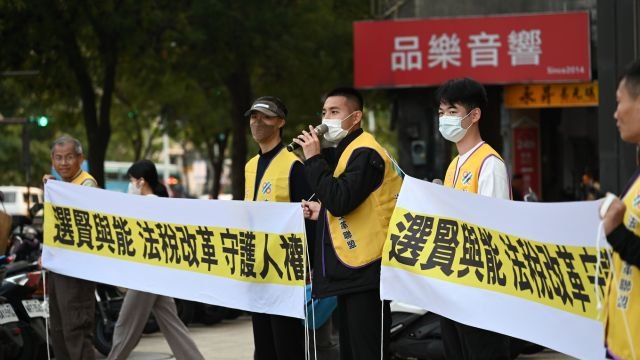By Willy Fautré*
*A paper presented at the webinar “The Judiciary, Freedom of Religion or Belief, and the Tai Ji Men Case,” co-organized by CESNUR and Human Rights Without Frontiers on January 11, 2025, Taiwan’s Judicial Day.

The judiciary is an important pillar of democracy and the rule of law. Its independence from the legislative and the executive powers is of vital importance for our liberal democracies.
That is why it is a good initiative to publicly recall that our current freedoms were never a gift but they had to be conquered, that they should not be taken for granted forever, that they need to be preserved like a treasure, protected, and defended against all sorts of threats.
The judiciary is the lung of the rule of law. Its independence is the oxygen that it needs for the proper functioning of all the organs of the nation and society.
In the Tai Ji Men case, the Taiwanese judiciary suffered from systemic dysfunctions inside the administrative justice.
For years and decades, the rule of law in Taiwan has been under threat of a specific state organ, the administration of the National Taxation Bureau, and this has undermined the efficiency of the judiciary.
What is at stake in the case of Tai Ji Men is the system of bonuses by which there is a conflict of interests leading to the over-collection of taxes and even the fabrication of tax evasion cases. This is an obvious abuse of power for private financial gain and a pyramidal scam as some unscrupulous officials pocket money for dubious reasons.

The beneficiaries of this rotten system are the Ministry of Finance, the National Taxation Bureau, and the Administrative Enforcement Agency. Noteworthy is that this bonus system, which is a product of the Martial Law era, is artificially and probably illegally kept alive while it should be extirpated without delay as it threatens the good health of democracy in Taiwan.
Businesses are often coerced by tax officers to pay some unjustified taxes, and some tax officers would even conduct malicious tax audits for the sake of bonuses. In a number of cases, including the Tai Ji Men case, the Administrative Enforcement Agency would forcibly auction off the property of individuals, companies, or non-profit associations although they don’t really owe any tax. Last but not least, issuing a so-called “wrong” tax bill is not punished in practice by internal sanctions or by law.

The case of Tai Ji Men highlights the need for reform in the Taiwanese judiciary, especially the administrative litigation system. Tai Ji Men should be the driving force of a coalition of victims of the bonus system whose objective would be its disappearance as it creates incentives leading to undue fiscal and judicial harassment. Moreover, the rule of law and of justice will never remain safe if those in state administrations and the judiciary who were found to be negligent or to have abused their power are not sanctioned.
Taiwanese citizens need safeguards against abuses of the law by the state, its administrations, and its public servants. This webinar also contributes to Tai Ji Men’s quest for justice for all.

Willy Fautré, former chargé de mission at the Cabinet of the Belgian Ministry of Education and at the Belgian Parliament. He is the director of Human Rights Without Frontiers, an NGO based in Brussels that he founded in 1988. His organization defends human rights in general but also the rights of persons belonging to historical religions, non-traditional and new religious movements. It is apolitical and independent from any religion.
He has carried out fact-finding missions on human rights and religious freedom in more than 25 countries He is a lecturer in universities in the field of religious freedom and human rights. He has published many articles in university journals about relations between state and religions. He organizes conferences at the European Parliament, including on freedom of religion or belief in China. For years, he has developed religious freedom advocacy in European institutions, at the OSCE and at the UN.



